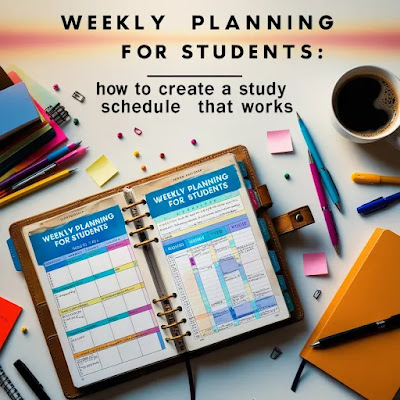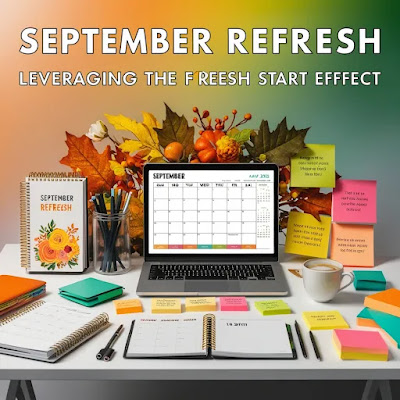Harnessing Mindfulness in the Age of AI: How to Stay Grounded in a Digital World
Harnessing Mindfulness in the Age of AI: How to Stay Grounded in a Digital World
Introduction to AI and Its Impact on Mental Well-being
Artificial Intelligence (AI) is transforming our lives in unprecedented ways. From chatbots that handle customer service to virtual assistants like Siri and Alexa that manage our daily tasks, AI is deeply integrated into our routines. Recommendation algorithms suggest what we should watch, read, or buy next, tailoring experiences to our preferences. While these technologies make life more convenient, they also bring challenges, particularly when it comes to mental well-being.
The constant stream of information and the need to stay connected can lead to stress, anxiety, and digital fatigue. These are serious issues that need to be addressed, especially as AI continues to evolve and become more pervasive. This article explores how mindfulness can serve as a powerful tool to counteract the mental health challenges posed by AI and digital technologies, helping us stay grounded in a rapidly changing world.
Understanding Digital Overload
The Constant Connectivity Conundrum
In today’s digital age, staying connected is both a blessing and a curse. On the one hand, technology allows us to stay in touch with loved ones, work remotely, and access information instantly. On the other hand, this constant connectivity can be overwhelming. AI-driven notifications, updates, and alerts keep us perpetually engaged, making it difficult to find moments of peace.
This phenomenon, often referred to as digital overload, occurs when we are bombarded with more information than we can process. The pressure to respond to messages, keep up with social media, and manage a continuous flow of digital tasks can lead to stress, anxiety, and even burnout. Understanding the effects of digital overload is the first step toward mitigating its impact on mental health.
The Necessity of a Digital Detox
One effective way to combat digital overload is through a digital detox. A digital detox involves deliberately disconnecting from technology for a period of time to reduce stress and restore mental clarity. In the AI era, where our devices are designed to keep us constantly engaged, taking a break from screens is more necessary than ever.
During a digital detox, you might choose to turn off notifications, avoid social media, or even spend a weekend without your smartphone. These breaks allow your mind to reset and recharge, helping you return to your digital life with a clearer, more focused mindset.
The Role of Mindfulness in Managing AI-Induced Stress
Counterbalancing Stress with Mindfulness
Mindfulness, the practice of staying present and fully engaged in the moment, offers a powerful counterbalance to the stress caused by AI and digital technologies. By cultivating mindfulness, we can develop the ability to remain centered and focused, even when surrounded by digital distractions. This practice is not just about meditation; it’s about bringing a mindful approach to everything you do.
For example, when you receive an overwhelming number of notifications, instead of reacting immediately, mindfulness teaches you to pause, breathe, and respond intentionally. This can significantly reduce the stress associated with constant digital engagement.
Techniques for Staying Present in a Distracted World
In a world full of digital distractions, staying present can be challenging. However, mindfulness techniques can help you navigate these challenges effectively. Here are a few practices to consider:
- Mindful Breathing: Focus on your breath to bring your attention back to the present moment.
- Mindful Walking: Take a walk and concentrate on the sensations in your body and the environment around you.
- Meditation: Set aside a few minutes each day to meditate, helping you build mental resilience against digital stress.
These practices help you stay grounded and maintain your mental well-being, even in the face of digital overload.
Practical Mindfulness Techniques for the Digital Age
Mindful Breathing: Finding Calm Amidst the Chaos
Mindful breathing is one of the simplest yet most effective mindfulness practices. It involves taking deep, intentional breaths to calm your mind and body. When you feel overwhelmed by digital stimuli, pause for a moment, close your eyes, and focus on your breath. Inhale deeply through your nose, hold for a few seconds, and then exhale slowly through your mouth. Repeat this several times until you feel more centered and relaxed.
Mindful Breaks: Incorporating Tech-Free Moments
Incorporating short, tech-free moments of mindfulness into your daily routine can significantly reduce stress. These mindful breaks provide an opportunity to step away from screens and reconnect with yourself. Whether it’s a brief walk outside, a few minutes of stretching, or simply sitting quietly, these breaks allow your mind to reset and recharge, enhancing your overall well-being.
Mindful Consumption: Intentional Digital Engagement
In the digital age, it’s easy to consume content mindlessly, which can lead to information overload and stress. Mindful consumption involves being intentional about the digital content you engage with. Before diving into social media, ask yourself if the content aligns with your values and goals. This approach helps you avoid unnecessary stress and ensures that your digital interactions are purposeful and positive.
AI Tools for Enhancing Mindfulness
Positive Use Cases of AI in Mindfulness
While AI can contribute to digital overload, it can also be used positively to enhance mindfulness. AI-driven mindfulness apps, for example, provide guided meditation sessions, track your progress, and offer personalized insights to help you stay mindful throughout the day. These apps leverage AI’s capabilities to make mindfulness practices more accessible and effective.
Recommended AI-Driven Mindfulness Apps
If you’re looking to use AI to support your mindfulness practice, here are some apps that stand out:
- Headspace: Offers AI-driven personalized meditation sessions that adapt to your needs and progress.
- Calm: Provides AI-powered recommendations for meditation, sleep, and relaxation, tailored to your mood and preferences.
- Waking Up: Features guided meditations and mindfulness courses, enhanced by AI-driven insights to deepen your practice.
- MyLife Meditation: Uses AI to suggest mindfulness exercises based on your current emotions and stress levels.
These apps are designed to help you integrate mindfulness into your daily routine, making it easier to stay grounded in the digital age.
Balancing Technology and Mindfulness
Setting Boundaries with Technology
To maintain mental clarity and well-being in the age of AI, it’s essential to set boundaries with technology. This might involve creating specific times of the day when you disconnect from your devices, establishing tech-free zones in your home, or limiting the amount of time you spend on social media. Setting these boundaries can help reduce digital fatigue and create more space for mindfulness practices.
Creating a Mindful Tech Environment
A mindful tech environment is one where technology is used intentionally and in ways that support mental well-being. This could involve using AI to limit screen time, curating your digital space to include content that inspires and uplifts you, or making conscious choices about when and how you engage with technology. By creating a mindful tech environment, you can use technology in ways that enhance, rather than detract from, your mental health.
Conclusion: Staying Grounded in the AI Era
As AI continues to evolve and become more embedded in our daily lives, the importance of mindfulness in maintaining mental well-being cannot be overstated. By harnessing mindfulness techniques, setting boundaries with technology, and leveraging AI tools that support well-being, we can stay grounded and resilient in a rapidly changing digital world.
Start your mindfulness journey today by incorporating these practices into your daily routine. Visit ElevateAura.net for more tips, in-depth articles, and resources on self-improvement and productivity. Together, we can navigate the challenges of the digital age and create a more balanced, mindful life.
FAQ
1. What is digital overload, and how does it affect mental health?
Digital overload occurs when we are overwhelmed by the constant flow of information and notifications from digital devices. This can lead to stress, anxiety, and burnout, negatively impacting mental health.
2. How can mindfulness help in managing digital overload?
Mindfulness helps by bringing our attention back to the present moment, allowing us to recognize and manage stress more effectively. Techniques like mindful breathing and mindful breaks can reduce the impact of digital overload.
3. Can AI be used positively in mindfulness practices?
Yes, AI can be a powerful tool in enhancing mindfulness. AI-driven apps like Headspace and Calm offer personalized meditation sessions and track progress, making mindfulness practices more accessible and effective.
4. What are some practical tips for balancing technology and mindfulness?
To balance technology and mindfulness, set boundaries with your devices, create tech-free zones, and be intentional about your digital consumption. Additionally, use AI tools that promote healthy tech habits and reduce screen time.
5. How can I start practicing mindfulness in the digital age?
Start with simple mindfulness techniques like mindful breathing and mindful consumption. Incorporate short, tech-free breaks into your day, and use AI-driven mindfulness apps to support your practice.
Mindfulness is a crucial tool for navigating the digital challenges of the AI era. By integrating mindfulness into your daily life, you can maintain mental well-being, reduce stress, and stay grounded in a world that’s constantly connected. Visit ElevateAura.net for more insights on how to thrive in the digital age with mindfulness.










Thank you all for your comments and continuous support. Your feedback is invaluable and keeps us motivated to continue sharing inspiring and useful content. Feel free to ask any questions or share your thoughts – we’re here to help you achieve your personal development goals.
– The ElevateAura Team